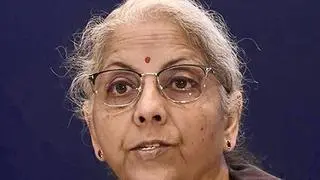The six-year-long logjam at the Montreal Protocol on the inclusion of greenhouse gas hydro-flurocarbons (HFCs), used as a coolant for refrigeration, is unlikely to be cleared at the United Nations this year.
India, which had been leading a group of countries, including the Gulf nations, for the last six years in protesting against proposals to amend the protocol to include HFCs, maintained its silence. However, over a dozen countries such as Saudi Arabia, Kuwait, Jordan and Venezuela, are opposed to the formation of a contact group to negotiate the issue of HFCs.
With the formation of an informal group for discussions on the proposed amendment, a breakthrough remains highly unlikely.
Neutral stanceWhile India, like China and Brazil, remained neutral towards the proposed amendment, senior members of the Indian delegation also confirmed that India will not oppose the formation of a contact group, if asked at a later date.
However, if such a proposal was made the country would highlight its demands and concerns, some of which include transfer of technology from the developed countries, monetary support and others.
Surprisingly, the Indian delegation decided to quote the bilateral joint statement between India and the US under which India had agreed to discuss HFCs at the Montreal Protocol, with some conditions, such as technology transfer. India’s softened stance has, however, injected confidence among international negotiators, who see this as a step forward.
This movement comes in the wake of months of bilateral negotiations between India and the US and also the China and the US. Furthermore, in another unusual move, Environment Minister Prakash Javadekar is expected to join the meeting on Thursday. Traditionally, the Montreal Protocol talks are led by the Director of the Ozone cell.
India-US statementJavadekar’s decision to attend the meeting comes after the Minister had opposed the discussion on HFCs under the Montreal Protocol even after the September 30 joint statement by Prime Minister Narendra Modi and US President Barack Obama, under which the two countries “recognised the need to use the institutions and expertise of the Montreal Protocol to reduce consumption and production of HFCs”.
The writer is in Paris at the invitation of The Centre for Science and Environment.








Comments
Comments have to be in English, and in full sentences. They cannot be abusive or personal. Please abide by our community guidelines for posting your comments.
We have migrated to a new commenting platform. If you are already a registered user of TheHindu Businessline and logged in, you may continue to engage with our articles. If you do not have an account please register and login to post comments. Users can access their older comments by logging into their accounts on Vuukle.